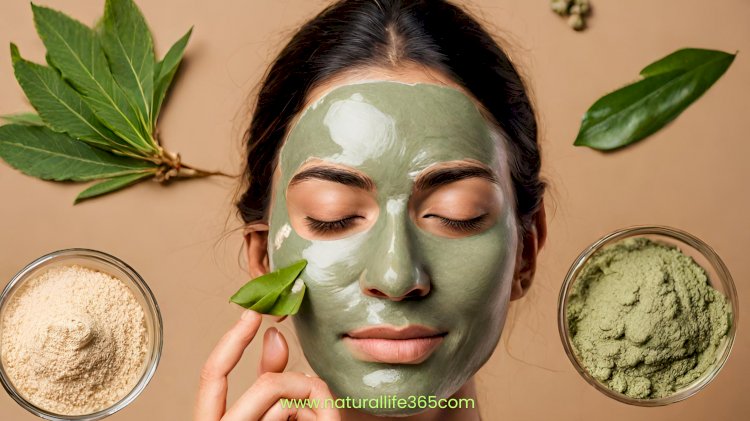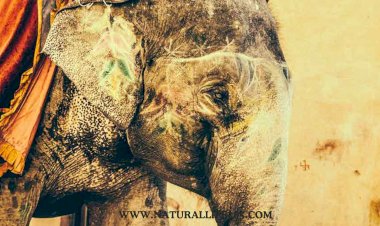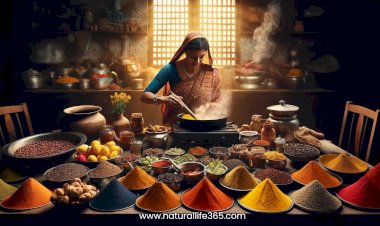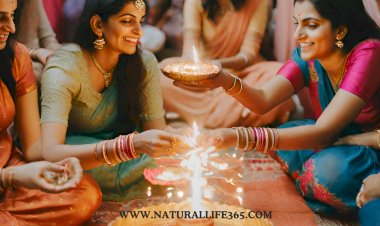What are the Best Ayurvedic Ingredients for Homemade Face Masks?
Transform your skincare routine with powerful Ayurvedic ingredients! Discover the secrets to radiant skin in this guide to the best homemade face mask ingredients. Unleash your natural glow now!

In a world inundated with beauty products laden with chemicals, the journey to discovering the best Ayurvedic ingredients for homemade face masks is like unlocking nature's secret to a glowing complexion. Ayurveda, the ancient Indian system of holistic healing, brings forth a treasure trove of herbs and spices, each with unique properties that cater to various skincare needs.
Picture your kitchen as a cosmetic apothecary, stocked with turmeric, neem, sandalwood, aloe vera, and tulsi—each ingredient holding centuries of skincare wisdom. Together, we'll explore the individual benefits of these Ayurvedic gems and learn how to concoct simple yet potent face mask recipes that cater to your skin's specific requirements.
Whether you're seeking a radiant glow, battling inflammation, or aiming for an anti-aging boost, this guide will help you navigate the world of Ayurvedic skincare, empowering you to embrace the beauty of natural, homemade solutions for a luminous and revitalized complexion. Let's dive into the rejuvenating world of Ayurvedic face masks and unveil the secrets to nurturing your skin the way Mother Nature intended.
The Best Ayurvedic Ingredients for Radiant Skin
Ayurveda places a profound emphasis on natural ingredients that not only nurture the skin but also address its unique needs. In this exploration of Ayurvedic ingredients for radiant skin, we unveil the botanical treasures that have been cherished for centuries for their rejuvenating properties.
1. Turmeric: The Golden Elixir
Known as the "golden spice," turmeric is a powerhouse of antioxidants and anti-inflammatory properties. Its ability to brighten the skin and even out the complexion makes it a star ingredient in Ayurvedic skincare.
2. Neem: Anti-Inflammatory and Antibacterial Properties
Neem, with its potent antibacterial and antifungal properties, is a key player in Ayurvedic skincare. Ideal for those with acne-prone skin, neem helps cleanse and purify, promoting a clear and radiant complexion.
3. Sandalwood: Soothing and Anti-Aging Effects
Sandalwood not only imparts a delightful fragrance but also boasts soothing and anti-aging benefits. It's a staple in Ayurvedic skin care, offering a natural way to calm the skin and reduce signs of aging.
4. Aloe Vera: Healing and Moisturizing Properties
Known for its hydrating and healing properties, aloe vera is a go-to ingredient in Ayurvedic face masks. It nourishes the skin, soothes irritation, and promotes a healthy glow.
5. Tulsi (Holy Basil): Purifying and Rejuvenating Benefits
Tulsi, revered for its purifying and rejuvenating qualities, is a sacred herb in Ayurveda. In skincare, it helps detoxify the skin, leaving it refreshed and revitalized.
DIY Ayurvedic Face Mask Recipes
Indulging in a spa-like experience at home is not just a luxury; it's a self-care ritual that your skin deserves. Let’s create some DIY Ayurvedic face masks that not only pamper your skin but also bring the rejuvenating power of natural ingredients to your fingertips.
1. Turmeric and Honey Glow Mask
Combine a teaspoon of turmeric with a tablespoon of honey for a radiant boost. Turmeric's anti-inflammatory properties, paired with honey's moisturizing effects, create a powerhouse mask for a luminous complexion.
You will need:
Mix these ingredients to form a paste, then apply it to your face. Leave it on for 15-20 minutes before rinsing with lukewarm water.
2. Neem and Multani Mitti (Fuller's Earth) Detox Mask
For a deep cleanse, mix neem powder with Multani Mitti (clay) and water. Neem's purifying qualities and Multani Mitti's ability to absorb impurities make this mask perfect for detoxifying your skin.
You will need:
- 1 tablespoon of neem powder
- 1 tablespoon of Multani Mitti
- Water (as needed to form a paste)
Combine the neem powder and Multani Mitti, gradually adding water to create a smooth consistency. Apply the mask, let it dry, and wash it off with water.
3. Sandalwood and Rose Water Calming Mask
Create a soothing blend with sandalwood powder and rose water. This Ayurvedic classic helps calm irritated skin, reduces redness, and leaves you with a serene glow.
You will need:
- 1 tablespoon of sandalwood powder
- Rose water (as needed to form a paste)
Mix sandalwood powder with rose water until it forms a paste. Apply the mask and leave it on for 15-20 minutes before rinsing.
4. Aloe Vera and Cucumber Hydration Mask
Revitalize your skin with the hydrating combination of aloe vera gel and cucumber juice. This cooling mask replenishes moisture, soothes, and is perfect for a spa day at home.
You will need:
Combine aloe vera gel and cucumber juice, apply the mixture to your face, and let it sit for 15 minutes. Rinse off with cool water.
5. Tulsi and Yogurt Radiance Mask
Harness the power of Tulsi by mixing its powder with plain yogurt. This mask not only imparts a radiant glow but also nourishes the skin, leaving it feeling refreshed and revitalized.
You will need:
Mix Tulsi powder with yogurt to create a paste. Apply the mask, leave it on for 15-20 minutes, and rinse with lukewarm water.
With these DIY Ayurvedic face mask recipes, you can tailor your skincare routine to address specific needs, from brightening to detoxifying and beyond.
Tips for Effective Application of Ayurvedic Face Masks
Creating your own Ayurvedic face masks is a delightful journey into the world of natural skincare, but the key to reaping their full benefits lies in the application. Let's dive into some essential tips to ensure that your DIY Ayurvedic face masks not only feel indulgent but also work wonders for your skin.
1. Proper Preparation is Key
Before applying any Ayurvedic face mask, ensure your skin is clean and free from makeup or impurities. Gently cleanse your face with a mild, natural cleanser to create the perfect canvas for the mask to work its magic.
2. Mind the Mix
Pay attention to the ratios when mixing your ingredients. Whether it's the vibrant turmeric or the purifying neem, the right proportions ensure a balanced mask that maximizes the benefits of each ingredient.
3. Time and Timing
Allow your Ayurvedic face mask adequate time to work its wonders. Follow the recommended duration for each mask, usually between 15 to 20 minutes. Timing is crucial to ensure the ingredients penetrate the skin and deliver their benefits.
4. Customize for Your Skin Type
Tailor your face mask to your specific skin type. If you have dry skin, opt for hydrating ingredients like aloe vera. For oily or acne-prone skin, incorporate ingredients like neem and Multani Mitti for a deep cleanse.
5. Gentle Removal Process
When it's time to remove the mask, do so with care. Use lukewarm water and gentle, circular motions to avoid unnecessary irritation. Pat your face dry instead of rubbing, preserving the benefits of the mask.
6. Frequency Matters
While indulging in a face mask feels luxurious, it's crucial not to overdo it. Follow the recommended frequency for each mask – typically once or twice a week – to allow your skin to rejuvenate naturally.
Incorporating Ayurvedic Skincare into Your Routine
Embracing Ayurvedic skincare isn't just a beauty trend; it's a holistic approach that nurtures your skin from the inside out. In addition to using the face masks explained above, let's explore how you can seamlessly incorporate Ayurvedic principles into your daily routine for a radiant and balanced complexion.
1. Understand Your Skin Type
Ayurveda categorizes skin into three types - Vata, Pitta, and Kapha. Identifying your skin type allows you to choose the right Ayurvedic ingredients and products that cater to your unique needs.
2. Morning Ritual with Herbal Cleansing
Start your day with a gentle herbal cleanser. Opt for ingredients like neem, rose, or aloe vera to cleanse and refresh your skin without stripping away its natural oils.
3. Nourishing Ayurvedic Oils
Incorporate Ayurvedic oils into your routine for a luxurious massage or as a part of your nightly skincare ritual. Sesame oil for Vata, coconut oil for Pitta, and almond oil for Kapha are excellent choices.
4. Mindful Nutrition for Skin Health
Ayurveda places a strong emphasis on internal balance. Consume a diet rich in fruits, vegetables, and herbs to nourish your skin from within. Stay hydrated with warm water or herbal teas.
5. Ayurvedic Lifestyle Practices
Incorporate Ayurvedic lifestyle practices such as tongue scraping, oil pulling, and mindful breathing exercises. These practices promote overall well-being, reflecting positively on your skin.
6. Choose Ayurvedic Products Wisely
Opt for skincare products with Ayurvedic ingredients and formulations. Look for natural ingredients like tulsi, ashwagandha, and licorice that work synergistically with your skin.
And this is where this blog ends. If you were looking for natural ingredients to make homemade face masks, these Ayurvedic products are the most recommended. Try them at home and then share your experience with me.
If you value these free online resources provided by Natural Life 365, please consider supporting my website by sharing the blogs ![]()
DISCLAIMER:
Some of the links in this content may be affiliate links. This means that if you click on one of the links and make a purchase, I may receive a commission (at no extra charge to you). However, I only recommend products that I personally use and have tested myself. Also, understand that I have taken reasonable steps to ensure that the information on this content is accurate, but I cannot represent that the website(s) mentioned in this post are free from errors. Please, check the Affiliate Disclosure at the bottom of this website.









































